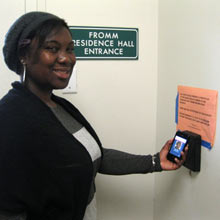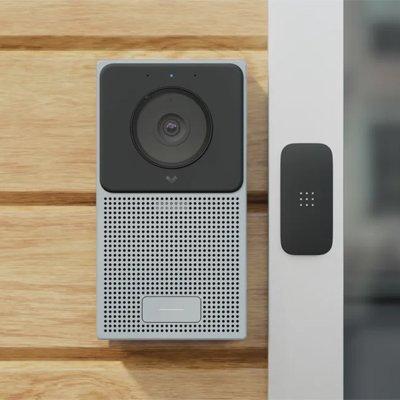 |
| The educational session, “The Future of NFC Enabled Mobile Devices,” will be held on September 24 |
Attendees to the ASIS Exhibition September 24-26 will be able to learn how both corporate and university campuses have implemented successful Near Field Communications (NFC) aptiQmobile deployments. The newest pilot, Heartland Payment Systems, the fifth largest payments processor in the United States, is now deploying employee owned Android smart phones as an access credential at their corporate campus to open doors. The educational session, “The Future of Near Field Communication (NFC) Enabled Mobile Devices,” will be held Tuesday, September 24 at 4:30 pm in Room S501d of Chicago’s McCormick Place during the ASIS Exposition.
“In this session, attendees will learn how a corporate campus deployed an NFC pilot program utilising Android phones as their primary access credential,” said Jeremy Earles, product marketing manager for readers and credentials at Ingersoll Rand. “In previous NFC pilot programs at VillanovaUniversity and the University of San Francisco, users enclosed their smart phones in a case to create the NFC capabilities. At Heartland Payment Systems, employees are using their own NFC-enabled Android phones, eliminating the need for a unique case.”
Fred Emery, vice president and general manager at Heartland Payment Systems-Campus Solution and Shane Bates CPP, director security cloud strategy, at LMC Consulting Group-Microsoft Global Security will join Earles on the panel. They will discuss how NFC technology is being used from access control to other ID badge applications, and discuss lessons learned from implementing such a system on a corporate campus.
The panel will also identify the benefits, pitfalls and lessons learned from students, employees and administrators alike by introducing NFC alongside a full card population. As a result, attendees will be able to understand what opportunities NFC technology might provide for the future of access control and link these experiences to NFC project execution within other environments and market segments.
“We will certainly stress the importance of leveraging a developer’s network,” added Earles. “For instance, Heartland Payment Systems joined our aptiQ Developer Network. This gave them access to Ingersoll Rand resources and allowed the two teams to work together to develop the appropriate interface between Heartland’s software and Ingersoll Rand's cloud-based aptiQmobile service.”
Since NFC capabilities are available now on some smart phones, many executives in the business and academic worlds will soon be utilising NFC-enabled cell phones for applications such as access control, visual identity and point-of-sale transactions. As the technology becomes commercially available, it will increasingly be applied to diverse corporate and educational settings.

















